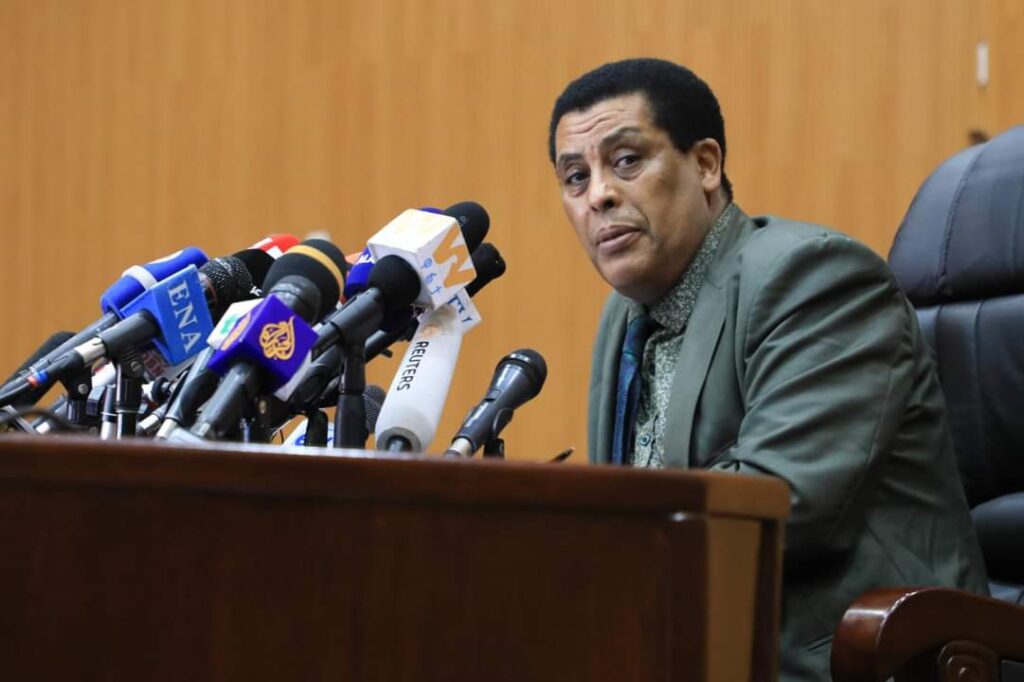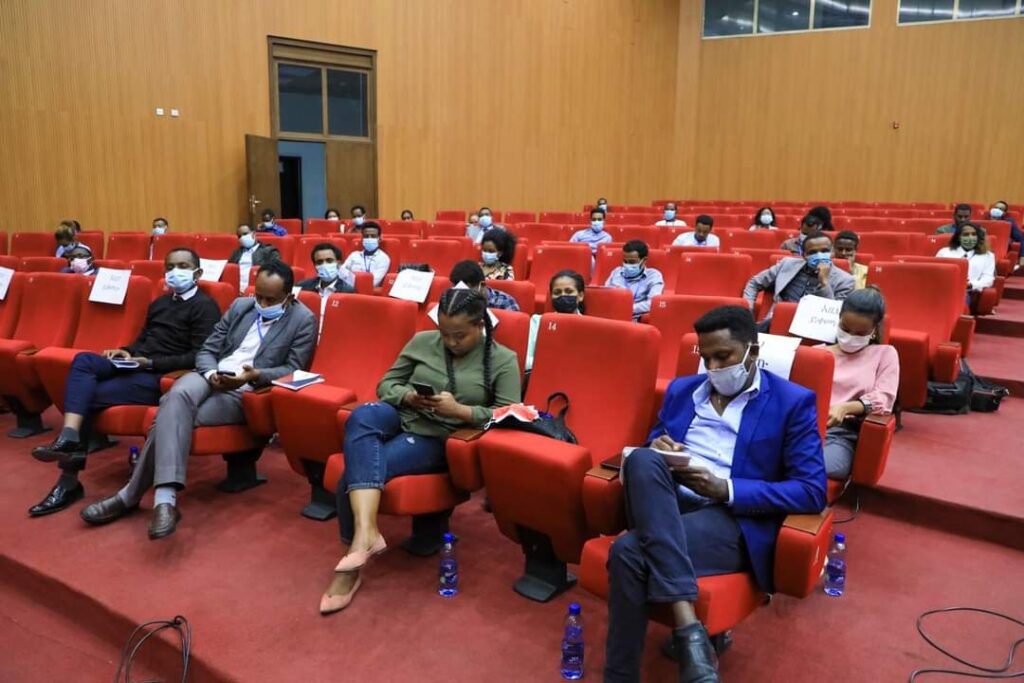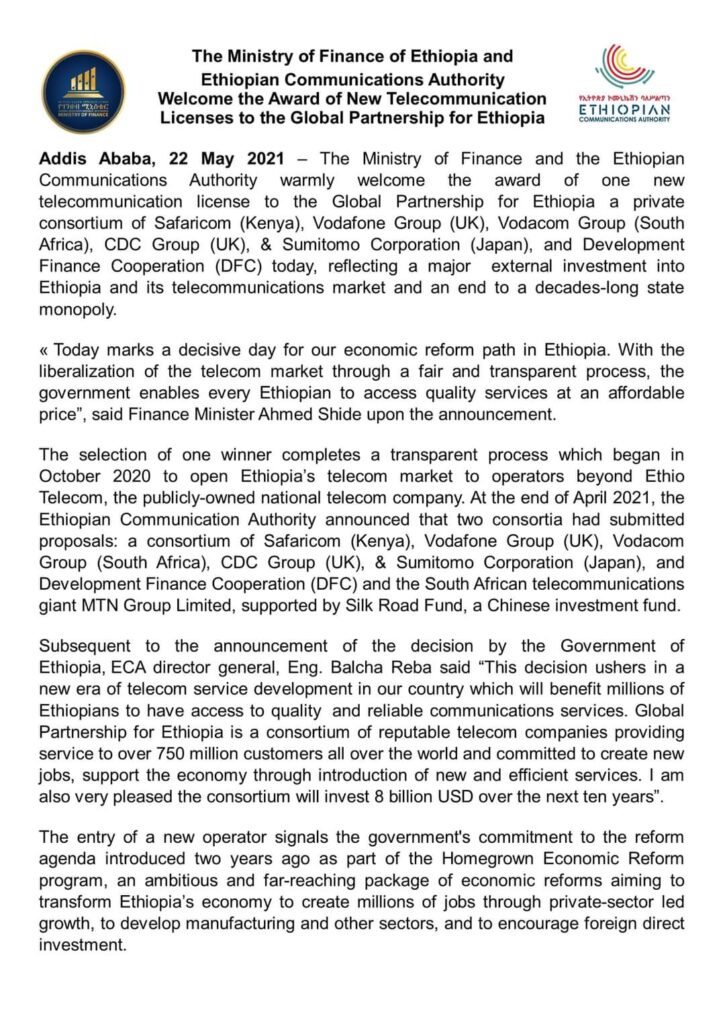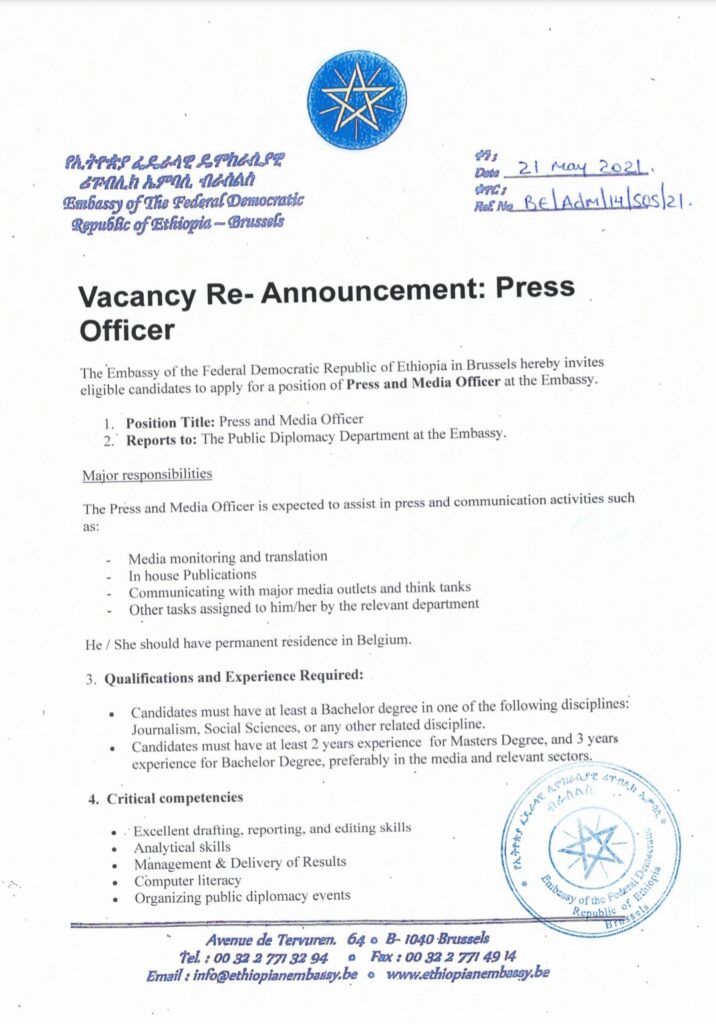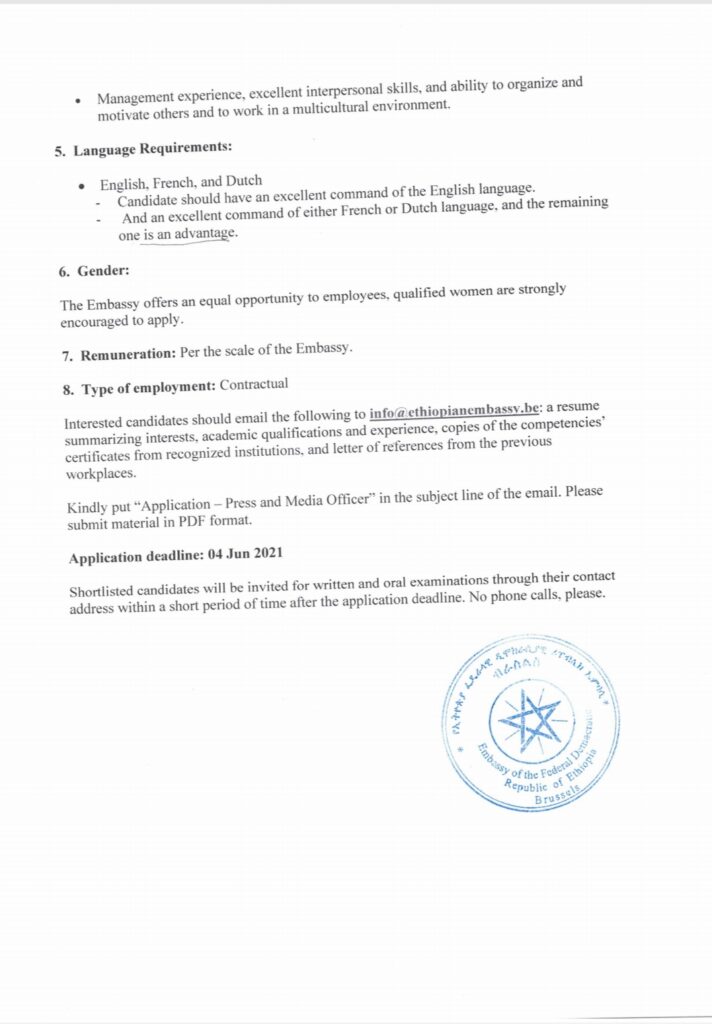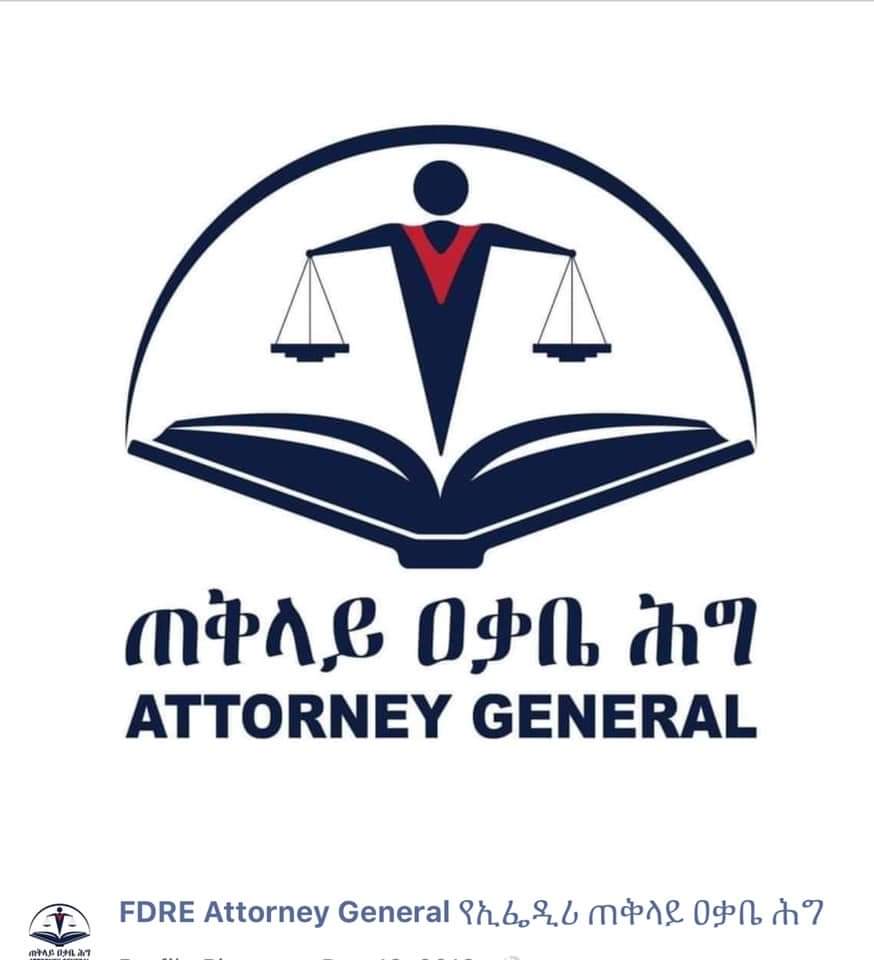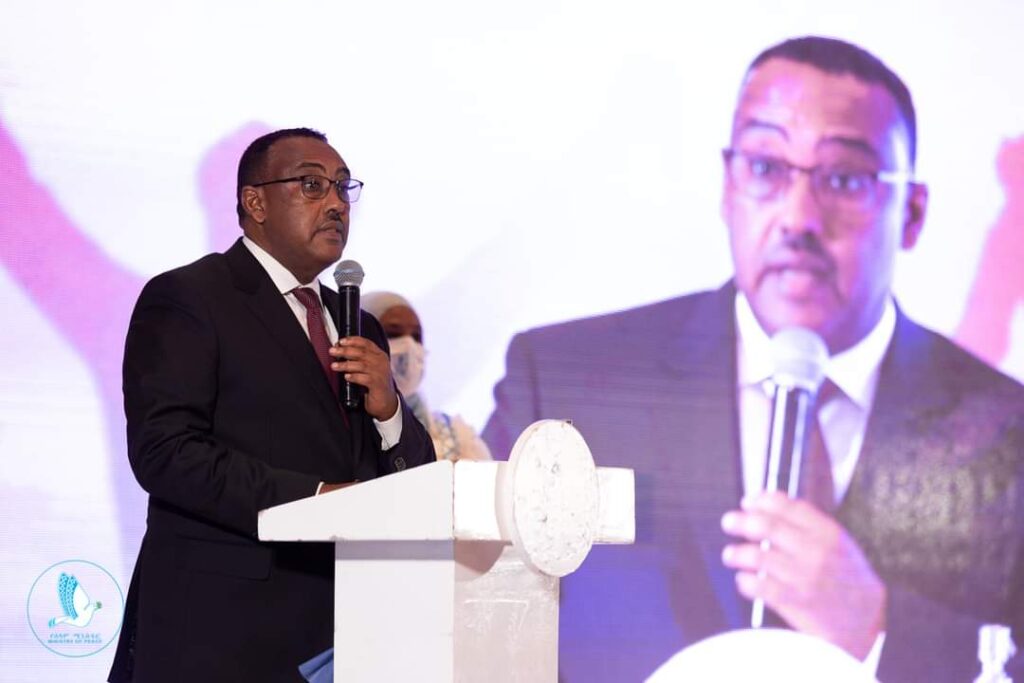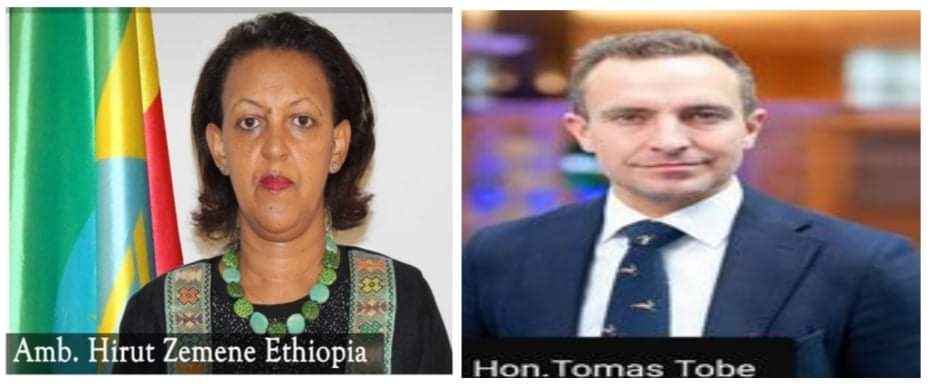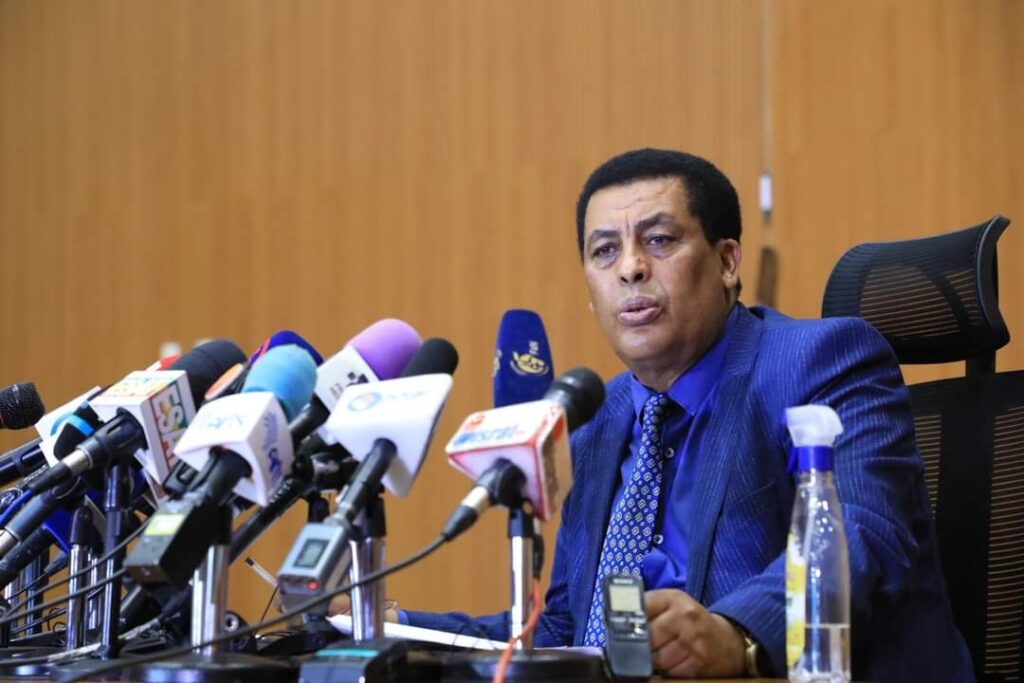Spokesperson of The Ministry of Foreign Affairs of Ethiopia, H.E. Ambassador Dina Mufti, gave the Ministry’s biweekly press briefing today (25 May 2021) to the media. In his presentation, the Ambassador focused on political diplomacy, Statements issued protesting decisions to infringe upon Ethiopia’s sovereignty,Press Freedomand diplomatic activities related to citizens and the economy.
=======
The Ministry of Foreign Affairs of Ethiopia wishes all Africans a #HappyAfrica Day. Every year on 25 May, we not only commemorate the founding of the Organization of African Unity (OAU), the forerunner of the #AfricanUnion but remember what each of the member states contributes to creating a uniquely African color! The relationship between Ethiopia, the people of Ethiopia and our African brothers and sisters before, during, and after the formation of the Organization stood the taste of time. We treasure our attachment to the Organization and continue to cherish Africa’s diversity and have absolute confidence in our capacity to give Solutions to our own Problems.
Press Briefing Summary
===
I. #PoliticalDiplomacy
H.E. Mr. Demeke Mekonnen, Deputy Prime Minister and Foreign Affairs of Ethiopia has received today (May 24) at his office Mr. Nick Dyer, the UK’s Special Envoy for Famine Prevention and Humanitarian Affairs. During their discussion, the two sides covered a range of topics of common concern in the Tigray region. Mr. Demeke reiterated the rehabilitation and humanitarian supports, including infrastructure restoration efforts that the government has been undertaking in the region.
H.E. Demeke Mekonnen, Deputy Prime Minister and Minister of Foreign Affairs, received at his office Mr.Hameed Nuru, the newly appointed Director for World Food Program (WFP) office and representative to AU and UNECA. The Deputy Prime Minister congratulated WFP for winning the Nobel Peace Prize for 2020 for its efforts to support people who are endangered due to man-made conflicts and natural disasters. He also praised the role played by the World Food Program (WFP) in providing humanitarian assistance to affected people in Tigray by refraining from unnecessarily politicizing the matter.
Deputy Prime Minister and the Ministry of Foreign Affairs of Ethiopia, H.E. Demeke Mekonnen has participated in a webinar organized by Ethiopian embassies accredited to neighboring countries and the great lakes region jointly with the Ministry of Foreign Affairs of Ethiopia. Present at the meeting and delivering remarks, Honourable Deng Dau Deng, Deputy Minister of Foreign Affairs and International Cooperation of the Republic of South Sudan said the GERD is a peace project that will benefit all in the region. With this understanding, he said the South Sudan parliament will soon ratify the Nile basin Cooperative Framework Agreement (CFA), which outlines rights and obligations for the development of the Nile Basin water resources.
In related news H.E. Demeke Mekonnen has delivered a keynote address at a webinar event co-organized by the Ministry of Foreign Affairs, the Ethiopian Embassy in Canada and Alliance for GERD in Canada on the topic of “The Grand Ethiopian Renaissance Dam (GERD): an opportunity for cooperation or a cause for confrontation?”. H.E. Demeke Mekonnen stressed that the dam provides an exceptional opportunity for cooperation and regional economic integration.
H.E. Ambassador Deriba Kuma has held a virtual meeting with Ms. Elisabeth Schwabe-Hansen, Head of the Horn of Africa and West Africa Department of the Ministry of Foreign Affairs of Norway. Ambassador Deriba updated the Head of the department on the recent developments both in Ethiopia and the Horn of Africa region. The Ambassador particularly emphasized the enhanced humanitarian relief efforts that the government is undertaking in the Tigray region.
Ethiopia and Brazil have made their second bilateral political consultation meeting covering a range of bilateral, regional, and multilateral issues of common concern. State Minister of Foreign Affairs of Ethiopia, H.E. Ambassador Redwan Hussien, and his Brazilian counterpart, H.E. Kenneth Da Nobrega have led the meeting. During the meeting, the two sides
• reflected on the performance of signed agreements during the first consultative meeting in 2018 and further assessed new venues of cooperation.
• assessed the Investment Cooperation and Facilitation Agreement which was signed to encourage investments and bilateral economic cooperation.
• assessed agreements to cooperate in peace-keeping missions and judicial matters related to police work and transfer of sentenced persons
• State Minister Redwan Hussien said Ethiopia is keen to take the relationship between the two countries to a strategic partnership level.
• Discussing regional issues, Ambassador Redwan has presented a briefing on critical issues that matter in the Horn of Africa and the role Ethiopia has been playing to forge a strong and peaceful relationship with its neighbours.
• Speaking about constructions of the Grand Ethiopian Renaissance Dam and the tripartite negotiation, Ambassador Redwan said Egypt and Sudan are trying to deny Ethiopia its right to equitably and fairly utilize its water resources.
• Ambassador Kenneth Da Nobrega, said Brazil understands Ethiopia’s critical role in Africa and wants to create strong ties with the country to boost relations with the rest of the continent.
• Also present at the meeting, Ethiopia’s Ambassador to Brazil, H.E. Yalew Abate Reta reiterated attractive investment opportunities in Ethiopia and called on Brazilian investors to invest in agro-processing, textile, and manufacturing sectors.
• The two sides concluded their meeting pledging to increase cooperation on multilateral levels and cement their longstanding relationships.
H.E. Ambassador Taye Atske Selassie, Permanent Representative of Ethiopia to the United Nations has presented a webinar explanation over the scope and meaning of Senate Resolution 97, the status of the GERD negotiations and the upcoming general election to Ethiopians living in New York, New Jersey, Connecticut. The Ambassador and participants underscored the need to forge a united front to protect the country’s interests.
Special Envoy, Ambassador Extraordinary, and Plenipotentiary of the Federal Democratic Republic of Ethiopia to the State of Kuwait, H.E. Hssen Taju presented his Letters of Credence to the Kuwaiti Amir, His Highness Sheikh Nawaf Al-Ahmad Al-Jaber Al-Sabah in a ceremony held at the Bayan Palace yesterday.
II. #Statements
The Ministry has issued three press statements over the Week; two on misrepresentations in the media and one on the visa restrictions on Ethiopian officials by the United States. In related news Ethiopian embassy in Washington D.C. has also written a statement to refute claims stated to pass Senate Resolution 97.
A. The first two statements were about the alleged use of chemical weapons in Tigray. We have made it clear to the world that the matter is the latest round of smear campaigns by the media which is unsubstantiated as usual. We have made it clear that Ethiopia has not employed and will never use such banned munitions because it takes its international obligations under the Chemical Weapons Convention extremely seriously. As a victim of chemical weapons attack itself, Ethiopia also condemns in the strongest terms the use of chemical weapons by anyone anywhere.
B. Ethiopian Embassy in Washington Statement on Senate Resolution 97
The Ethiopian Embassy expressed its disappointment over passage of Senate Resolution 97 by the U.S. Senate on May 19, 2021 and stressed the critical importance of strengthening the bilateral security collaboration to combat terrorism in the Horn of Africa. For over 120 years, Ethiopia and the United States have worked as strong partners and allies in ensuring and enhancing stability and security in the Horn of Africa, a relationship that can serve as a model for the rest of Africa. It raised its concerns over the following points:
1. The Resolution creates a misplaced equivalency between the Government of Ethiopia and the Tigray People’s Liberation Front (TPLF) in calling for a ceasefire
2. The Resolution’s assertion of ‘lack of humanitarian access- in the Tigray region is contrary to fact.
3. The Resolution overlooks the fact that the infrastructure for public services was deliberately destroyed by the TPLF forces and that the Ethiopian Government has moved swiftly to restore such services at great cost.
4. The Resolution calls for -release of all opposition leaders, supporters, activists, and journalists detained on the basis of their political activity. There are no such detainees in Ethiopia. The Resolution regrettably intrudes on matters that are under consideration by the Ethiopian judiciary.
5. The Resolution’s call for national dialogue and reconciliation mirrors the effort launched following the enactment of Proclamation 1102/2018 in February 2019. The Reconciliation Commission and its 41 members, including prominent members of opposition parties, former high level political leaders, diverse religious figures, intellectuals, philanthropists, and others, continues its work today.
6. The Resolution’s call for an Independent and transparent investigation of alleged human rights abuses’ is currently well underway jointly between the UN and the Ethiopian Human Rights Commission. The Ethiopian Government is aggressively pursuing human rights violators and has convicted three soldiers and charged 28 others suspected of killing civilians in the Tigray region.
C. Press Statement: On the U.S. Decision to Impose Visa Restrictions on Ethiopian Officials
The Government of the Federal Democratic Republic of Ethiopia finds it unfortunate to learn about the decision by the United States to continue exerting undue pressure on Ethiopia by imposing visa restrictions on Ethiopian officials. This is in addition to its previous decisions to restrict economic and security assistance to Ethiopia. In this regard, the Ethiopian Government would like to state the following points:
• the Ethiopian government was expecting support and understanding and not such kind of ill-advised measures to unnecessarily overshadow the elections.
• the implications of the visa restrictions and other related measures taken earlier will seriously undermine this longstanding and important bilateral relationship.
• the tendency by the U.S. administration to treat the Ethiopian Government on an equal footing with the TPLF, a terrorist group is regrettable
• The Ethiopian government has been consciously working to promote national dialogue through a series of engagements with wider sections of the Ethiopian society but it should be understood that the government cannot be compelled to sit down and negotiate with the TPLF. Ethiopia should not be told how to run and manage its internal affairs.
• As far as alleged human rights abuses committed in the Tigray region are concerned, the Ethiopian government is fulfilling its commitment to hold those responsible accountable
• the Ethiopian government has not only demonstrated its willingness and commitment to work with the international community to respond to the humanitarian crisis in Tigray, but it has also provided full and unhindered access for humanitarian actors to operate in all parts of the region.
• the decision by the U.S. administration to impose visa restrictions and other measures is not only regrettable but will also seriously harm and undermine the constructive spirit of engagement and the significant gains achieved on the ground, not to mention the centuries-old people-to-people relationships.
III. #Press Freedom and Freedom of Expression
• Ethiopia, under the new administration, showed commitment to set many journalists free from unjust imprisonment, undertook legal reforms to improve the media landscape and expand unprecedented access to information and publications (print, social and broadcast media) like never before
• The expulsion of the New York Times journalist is attributed to the expiration of his work permit in Ethiopia a few months ago. His expulsion should have happened a few months ago.
• According to the head of the Oromia Regional State Communication Bureau, the death of the OBN journalist in Wollega is attributable to the act of the recently parliament-designated terrorist Shene group operating in the area. They were not happy about what he was reporting about them and they used to send him death threats.
• More than 82 foreign journalists have been given access to the Tigray region
• Ethiopia expects foreign journalists to respect the professional ethics of journalism and above all the laws of the land and the terms and conditions of the work permits in the country
IV. #EconomicDiplomacy
The Consulate General of Ethiopia in Los Angeles in collaboration with the Ministry of Foreign Affairs of the Federal Democratic Republic of Ethiopia hosted a virtual pre-investment meeting on Thursday (May 20). This meeting aimed to encourage the American companies’ representatives, residing on the West Coast of the United States of America, to enable them to explore and invest in Ethiopia and to have a general overview of the investment opportunities and incentives and packages in energy, agriculture, agro-processing, manufacturing, and other priority areas of investment in Ethiopia available for potential business companies.
H.E. President Uhuru Kenyatta on Thursday attended the inauguration ceremony of the first berth of the new Lamu Port- South Sudan-Ethiopia Transport Corridor project (LAPSSET) that was launched in 2012. Present at the occasion, Ethiopian Ambassador to Kenya, H.E. Meles Alem said Ethiopia would do its level best for the success of the project which will boost regional trade coupled with other infrastructure projects that created linkages between the two countries.
Embassy of the Federal Democratic Republic of Ethiopia to the People’s Republic of China in collaboration with Beijing Chengjia Culture Communications Co., Ltd. held Ethiopian Coffee Promotion Ceremony at the Ethiopian Embassy. During the ceremony, Deputy Head of Mission (DHM), Ambassador Dawano Kedir noted that Ethiopia and China have a long and multifaceted relationship which resulted in a very strong and successful partnership. He said, over the years, Ethiopian coffee is gaining more market share in the trade exchange between the two countries. Though the Chinese market has the potential, the export to the country of Ethiopian coffee was only around 4,000 tons in 2019.
V. #Citizen-centered diplomacy
The DFEND ETHIOPIA Task Force in the United Kingdom, in collaboration with Ethiopians and people of Ethiopian descent in Europe, North America, and Ethiopia, staged an online protest against infringements on Ethiopia’s sovereignty. The “hands off Ethiopia” rally drew more than 500 participants.
1136 Ethiopians were repatriated from Saudi Arabia over the week
